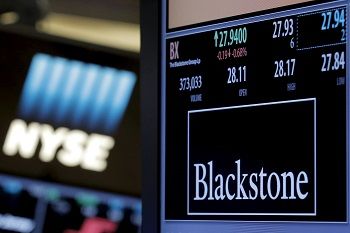The CDS market is up in arms over a controversial debt swap for US homebuilder Hovnanian Enterprises that has already led to a lawsuit against investment giant Blackstone for fraud.
At the centre of the storm is Blackstone’s credit arm GSO Capital Partners, which faces heavy losses on CDS it purchased linked to New Jersey-based Hovnanian.
The lawsuit alleges that GSO is offering Hovnanian a term loan well below market rates – but only if Hovnanian defaults on an existing bond to trigger a credit event that pays off GSO.
The move may not be illegal – GSO has done something similar with Codere and Norske Skog (although, unlike Hovnanian both of those companies were in some degree of distress) – but it has sparked fears that the integrity of credit default swaps will be permanently damaged.
“If manufactured defaults proliferate, it is my belief that the ability to price CDS will be irredeemably undermined,” former ISDA chief Robert Pickel wrote in support of the suit.
ISDA, the derivatives industry trade body, declined to comment.
Both Hovnanian and Blackstone vowed to defend themselves “vigorously” against the suit, which was filed earlier this month by a hedge fund, Solus Alternative Asset Management.
While Pickel has been retained by Solus’s lawyers for US$900 an hour as an expert in the case, he is hardly the only observer troubled by the default plan.
Robin Powers, a partner at law firm Rimon who specialises in derivatives, said that while the arrangement seems legal “on its face”, it could destabilise the market for single-name CDS.
“If you can’t rely on market forces determining whether you have to pay out, you are less likely to be willing to sell protection.”
“CLEVER” CLOGS
The complex refinancing targets Hovnanian’s 7% and 8% unsecured 2019 bonds. The 7% notes would be refinanced directly by GSO with a new term loan due in 2027, while the 8% notes would be subject to an exchange offer.
Investors can swap their holdings for a mix of cash, a new 13.5% unsecured bond due in 2026 and a 2040 bond, also unsecured, that will only pay a coupon of 5%.
As part of the swap, Hovnanian would default on a portion of the 8% note that one of its subsidiaries will acquire through the exchange, likely triggering payments on Hovnanian’s CDS.
The suit says that, because of the long maturity and low coupon – well under what an issuer in the lowest rungs of junk would be expected to pay – the new 2040s will be valued at a steep discount to par.
As such, the suit alleges, their only purpose is to provide GSO with a deeply impaired instrument to deliver into the CDS auction – which in turn would inflate the payout on those swaps.
“Hovnanian’s default is entirely avoidable and does not reflect its financial distress,” lawyers for Solus wrote in their filing, calling it a “fraudulent scheme”.
“GSO stands to lose massive sums of money,” they wrote. “Rather than accept that reality, GSO set out to bribe Hovnanian … and Hovnanian agreed.”
Independent research firm Covenant Review called the plan “deviously clever”, saying the missed interest payments would be small enough to avoid a cross-default on other Hovnanian bonds.
WANTING CONSENT
Hovnanian said it had won consent from bondholders to amend covenants on some of its existing secured bonds that limit its ability to use cash to buy back the unsecured 2019s.
A majority of the 10.5% 2024’s holders agreed to do away with the restrictions, but holders of the 10% 2022s have so far been more reticent.
Hovnanian thus sweetened the terms and extended the deadline, though one source familiar with the matter said the consents were not actually necessary.
While the company would benefit from removing the covenants, the debt swap could still go through as its terms already comply with all existing covenants, the source said.
The next court hearing in the case comes on January 25.
But whatever the ultimate outcome, some fear this is all a step too far for a CDS market whose US$1.5trn outstanding net notional is only a half of what it was only a few years ago.
“I have lost a ton of confidence in the market and in CDS,” one veteran US-based portfolio manager told IFR. “It is outright manipulation.”
Derivatives professionals acknowledge that the latest and perhaps most blatant example of a “manufactured” default in an attempt to trigger CDS – rather than because a company had genuinely defaulted – would, as one put it, “start a conversation” about whether and how to change the rules to eliminate such tactics.
It is clear, though, that doing so will be tricky. Introducing an effort to determine whether a default was “intentional”, for instance, would require ISDA’s Determinations Committee, which decides whether CDS credit events have taken place, to judge motive, something it is ill-equipped to do.
One derivatives expert said that the industry is hoping that the regulators, in particular, the US SEC, would take an interest in whether the parties involved had behaved appropriately and potentially put a stop to such actions in the future.
“I don’t see anyone doing anything proactively about it. It will depend on how the market reacts. Addressing it through a change in the [ISDA] definitions takes a very long time because there are so many interested parties,” said Powers.
